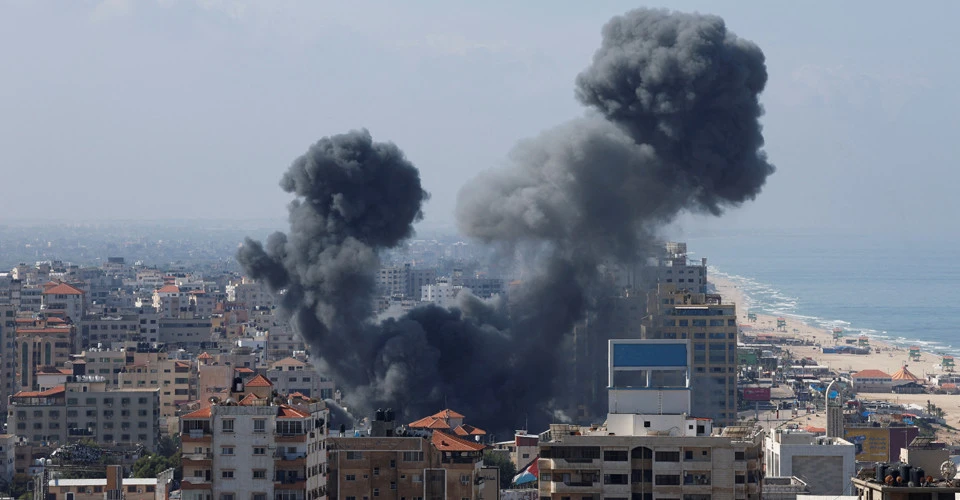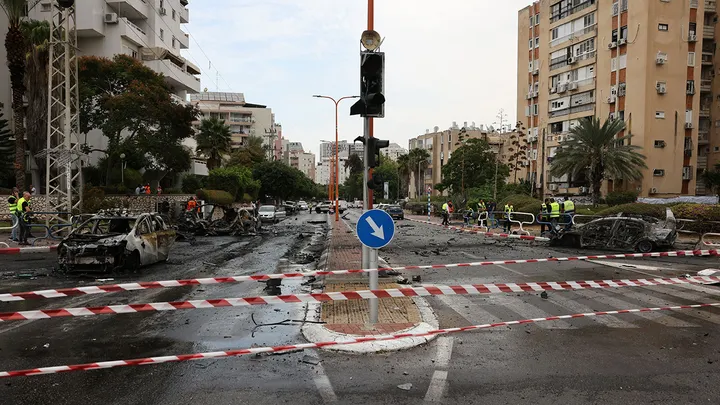Israel Imposes 'Total' Blockade On Gaza Strip After Major Attack By Hamas
Israel imposes 'total' blockade on Gaza strip after major attack by Hamas, including restrictions on food and water.
Author:Tyreece BauerReviewer:Elisa MuellerOct 10, 202351.1K Shares837.8K Views

Israel imposes 'total' blockade on Gaza strip after major attack by Hamas, including restrictions on food and water.
Blockade Announced After Major Attack
Israeli Defence Minister Yoav Gallant announced on Monday that authorities would impose a complete siege on Hamas-run Gaza, which is home to approximately 2.3 million people and one of the most densely populated areas globally.
The move comes after Hamas executed one of the most significant attacks on Israel in decades.
As part of the blockade, Israel plans to cut off electricity and block the entry of essential supplies such as food and fuel. This decision further tightens the existing blockade of the Gaza Strip, which has been in place since June 2007.
In its current form, the Israeli blockade of Gaza encompasses control over Gaza's airspace and territorial waters, as well as two of the three border crossing points, with the third being controlled by Egypt.
Minister Gallant emphasized the extent of the blockade, stating, "We are putting a complete siege on Gaza... No electricity, no food, no water, no gas – it's all closed."
Israeli Military Response
Israel's Chief Military Spokesperson, Daniel Hagari, informed reporters that Israel now has control over its communities following Saturday's mass incursion by Hamas fighters into its territory.
While there have been isolated incidents on Monday morning, there is currently no fighting in the communities. However, there may still be terrorists in the region, according to Hagari.
To prevent further infiltrations, Israeli tanks and drones are guarding openings in the fence. Fifteen of the 24 border communities have been evacuated, with the remaining communities expected to follow suit over the next 24 hours.
Hamas spokesperson Abdel-Latif al-Qanoua confirmed that the group's fighters are still engaged in battle outside Gaza and have captured more Israelis as recently as Monday morning.
The group's aim is to secure the release of all Palestinian prisoners held by Israel, a goal that has previously led to lopsided exchange deals.
Ongoing Attacks From Gaza
Israel continues to face attacks from Gaza, including a significant rocket barrage targeting the southern Israeli city of Ashdod.
While no immediate casualties have been reported, images from Ashdod show extensive damage to vehicles and buildings. Rockets have also struck the city of Ashkelon.
The recent escalation in tensions follows Israeli forces' recapture of areas near the Gaza Strip, which had been overrun during a Hamas mass-infiltration over the weekend.
The conflict, which began early Saturday morning, has resulted in reported casualties on both sides and has prompted Israeli Prime Minister Benjamin Netanyahu to declare that Israel is "at war," calling for a substantial military response.
Casualty figures are still emerging, with Israeli media reporting at least 800 Israelis dead as of Monday. The situation remains fluid and continues to develop rapidly, with both sides involved in intense military actions and political maneuvering.

Final Words
The Gaza Strip has been severely impacted by a Hamas attack, leading to Israel imposing a "total" blockade, limiting access to essential supplies and food.
The ongoing conflict has led to increased casualties on both sides, with rocket attacks targeting Israeli cities and a significant Israeli military presence near the Strip.
The international community is closely monitoring the situation, with concerns growing over the humanitarian impact of the blockade and the potential for further escalation.
Diplomatic efforts are underway to seek a resolution and ease the suffering of the civilian population in Gaza. The situation remains fluid, and the future will determine the conflict's trajectory and its broader implications for the Middle East.

Tyreece Bauer
Author
A trendsetter in the world of digital nomad living, Tyreece Bauer excels in Travel and Cybersecurity. He holds a Bachelor's degree in Computer Science from MIT (Massachusetts Institute of Technology) and is a certified Cybersecurity professional.
As a Digital Nomad, he combines his passion for exploring new destinations with his expertise in ensuring digital security on the go. Tyreece's background includes extensive experience in travel technology, data privacy, and risk management in the travel industry.
He is known for his innovative approach to securing digital systems and protecting sensitive information for travelers and travel companies alike. Tyreece's expertise in cybersecurity for mobile apps, IoT devices, and remote work environments makes him a trusted advisor in the digital nomad community.
Tyreece enjoys documenting his adventures, sharing insights on staying secure while traveling and contributing to the digital nomad lifestyle community.

Elisa Mueller
Reviewer
Elisa Mueller, a Kansas City native, grew up surrounded by the wonders of books and movies, inspired by her parents' passion for education and film.
She earned bachelor's degrees in English and Journalism from the University of Kansas before moving to New York City, where she spent a decade at Entertainment Weekly, visiting film sets worldwide.
With over 8 years in the entertainment industry, Elisa is a seasoned journalist and media analyst, holding a degree in Journalism from NYU. Her insightful critiques have been featured in prestigious publications, cementing her reputation for accuracy and depth.
Outside of work, she enjoys attending film festivals, painting, writing fiction, and studying numerology.
Latest Articles
Popular Articles